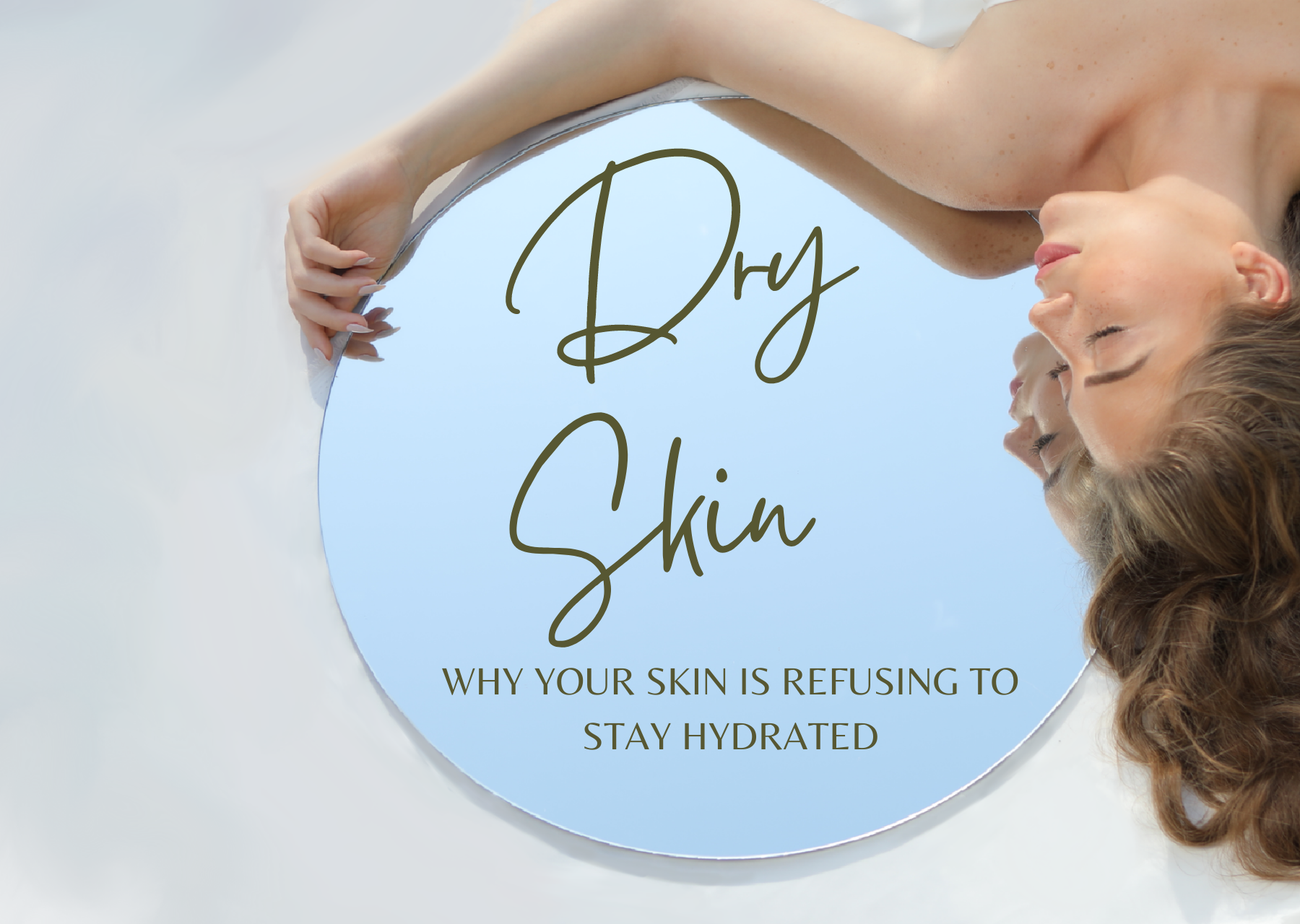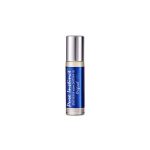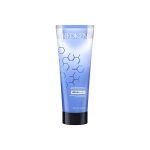No products in the cart

Dry skin
When it comes to skincare, understanding your skin type is vital. There’s a lot of information being thrown around out there, and A LOT of misconceptions. Whether it is regarding routines, products, DIYs or anything else, the way to stay on the safe side is by fully understanding your skin type and what it needs, that way you can start your skin care journey knowing what to look for, and what to avoid. In this blog we’re going to introduce you to dry skin; what it is, what causes it, how to manage it and more!
What is dry skin?
It’s a type of skin that produces less sebum (natural face oils) than any other. This leads to a lack of lipids that the skin needs to retain moisture and protect itself from external influences. You might have naturally dry skin, but it is possible to have naturally oily or combination skin and suddenly develop dry skin! This can happen due to many things, such as a change in environment or season – the weather plays a huge role in your skin’s sebum regulation, and might suddenly dry out from the shock of weather changes -, medication and treatments such as retinol for acne, etc.. If that’s the case, don’t worry. All you need to do is follow a dry skincare routine until you notice your skin returning to its regular state, and then you can jump right back into your old routine! Dry skin can affect any part of the body; most commonly the face, hands, arms, and legs. It looks flaky or chapped, and it sometimes causes redness and itchiness.
Signs of having Dry Skin:
1- The skin feels tight, especially after exposure to water.
2- Redness and inflammation.
3- Fine visible lines, sometimes beginning at an earlier age than usual.
4- Irritation.
5- Gray, ashy, flaky, or rough skin.
6- Itchiness.
What causes dry skin?
Other that naturally having dry skin, there are plenty of different elements that can cause it, like:
1- Weather:
Both cold and hot weather can cause dry skin as they both have a drop of humidity, which prevents the skin from extracting sufficient moisture in the environment. You might experience this when travelling as well, even during spring or autumn, as the weather in countries without large water bodies (oceans, lakes, etc..) tend to have extremely low humidity levels compared to your naturally humid weather in the GCC!
2- Overexposure to water:
Too much water can break down the skin’s natural protective barrier, which dries it out in the long run. We also wouldn’t recommend exposure to hot water for long periods because it affects the skin even faster. We know that the weather in the UAE, Saudi and other GCC countries might force you to jump in the shower any chance you get, but try to shower no more than once a day, especially to those beach, gym and pool lovers.
3- Smoking:
It leaves the skin dried and discoloured due to its effect in reducing blood flow and minimizing the skin’s vital nutrients. There are more than 4,000 chemicals in tobacco smoke, and many of them trigger the destruction of collagen and elastin. These are the fibers that give your skin its strength and elasticity. Smoking or even being around secondhand smoke “degrades the building blocks of the skin”. This speeds up the aging process and decreases your skin’s ability to retain moisture.
4- Medication:
Many treatments, like acne, cholesterol, blood pressure, antihistamines, cardiac, liver and kidney medications have drying side effects. So hydrate as much as you can, and load up on Omega 3 fatty acids to minimise the impact! Also make sure to discuss this issue with your doctor if the issue gets out of hand or you face any irritation that seems out of place.
How do I take care of Dry Skin?
There are many ways to take care of dry skin, but the best way is to make few changes in your lifestyle and habits, rather than trying miracle overnight solutions. So let’s take a look at a few examples of some changes and some Dos and Don’ts that will save your skin from drying out.
1- Moisturizers:
They work best to treat and prevent dry skin as they provide a seal over the skin to trap water from escaping. They keep the skin hydrated as much as possible and provide protection from symptoms such as itching, inflammation, and burning. Some moisturizers even help healing wounds. We’d recommend you also to use cosmetics that contain moisturizers in cases of extremely dry skin. We’d also recommend you to use a moisturizer that at least has some of the following ingredients (urea, glycerine, antioxidants, hyaluronic acid, and aquaporins)
And finally, here are some moisturizing tips for you:
- To get more benefits from your moisturizer, try adding a protective facial serum underneath it.
- Use your moisturizer at least twice a day or more in case of really dry skin.
- If you have sensitive skin, we’d recommend that you get a moisturizer free of acids, dyes, fragrances and other irritating substances. (More about this in our sensitive skin blog)
- Try applying your moisturizer right after your shower to get the best results.
2- Avoid water exposure for long periods of time:
Long showers, hot water, and long swimming periods will dry out your skin because extended water exposure will make your skin lose its oils; that’s why you should limit your bath or swimming time and be sure not to be exposed to hot water.
3- Humidifier:
Using a humidifier is important cause indoor air is almost always hot and dry and will probably worsen the skin’s itching and flaking. That’s why adding a clean humidifier to your home is important for your dry skin as it adds moisture to the air inside your home.
4- Stay hydrated:
It’s been proven that drinking enough water during the day is very effective in keeping your skin from drying out. Many doctors advise to drink enough water until your urine runs clear, especially when the cause for dryness is a particular medication.
We will update you soon about the ingredients to avoid in your skin care routine, if you have dry skin. Stay tuned for more!
We at Embrace love to always be there for you in every step of your skincare journey and will try to keep you as informed as possible with all things skin care related.




